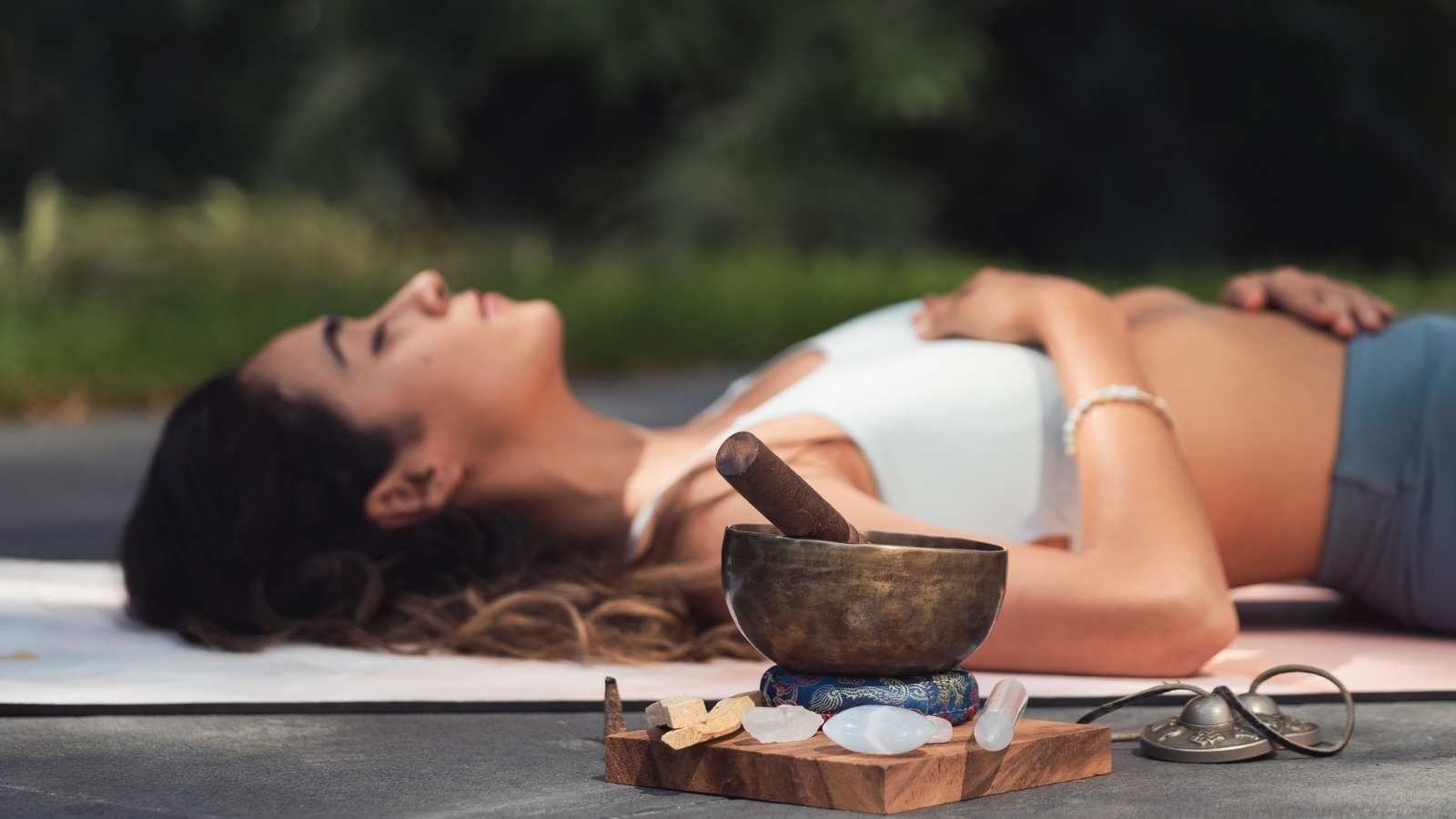True crime documentaries have a unique allure.
They captivate audiences with chilling narratives and complex mysteries and we seem to be very appealed to true crime stories, navigating in Netflix and other streaming services to find our next binge-watching show
But have you ever wondered why these stories of crime and justice seem very popular with women particularly and why women love crime so much?
According to research, women comprise a significant portion of the true crime audience. Women love crime. And this “crush” extends beyond the screen: true crime podcasts, books, and online communities where true crimes are constantly discussed among women.
But why do women love true crime?
Is it the psychological intrigue, the adrenaline rush, or perhaps a deeper, more complex reason? There are many factors that contribute to “women love crime,” and more profound and perplexing than we could ever imagine.
Understanding the appeal of true crime documentaries

True crime documentaries provide a glimpse into the dark side of human nature. Even if you are an eternal optimist, you can’t deny that we all have some dark sides. And this makes crimes both terrifying and fascinating. Many viewers are drawn to the complex narratives and the intricate details of crime-solving.
If men watch a crime documentary for mainly entertainment purposes, for women, this allure often goes beyond mere entertainment. There's a psychological pull, a desire to understand the motives behind such dark acts. It's like solving a puzzle, where each piece reveals more about humanity's shadowy aspects.
When experienced safely through a screen, the thrill of fear adds to the appeal. This controlled environment allows for the exploration of our own fears and anxieties without real-world risks and implications that come with crimes.
Moreover, there's a societal aspect at play. Women have historically been cautioned about personal safety and stranger danger. True crime stories highlight these themes, offering a sense of familiarity and validation.
Lastly, true crime documentaries offer an opportunity for reflection. They challenge viewers to consider moral and ethical questions, pushing them to understand complex issues of justice and morality. These stories of crime and its consequence resonate on both an emotional and intellectual level.
Empathy, fear, and adrenaline
Empathy plays a significant role in women's affinity for true crime documentaries. These stories allow viewers to connect with the victims' experiences deeply. This empathetic connection often manifests as a desire to see justice served.
Fear, on the other hand, is a complex yet captivating emotion. True crime allows women to experience fear and adrenaline, which can be thrilling in a safe environment. It offers a rush, similar to watching a horror film, but with the added interest of real-life stakes.
There's also an element of learning involved. By witnessing the fear and understanding the threats, women may feel more prepared for real-world dangers. It's an indirect way to arm oneself against potential threats. Adrenaline fueled by fear isn’t purely negative. It provides a mental escape from everyday routines. True crime's emotional highs and lows can break monotony, offering a cathartic experience.
These documentaries often examine thoroughly the psychological profiles of criminals. This insight satisfies a natural human curiosity about what motivates criminal behavior. Understanding the darker side of human nature can be both horrifying and intriguing.
Lastly, experiencing controlled fear may help individuals build resilience.
Confronting fears in a safe space offers a chance to assess personal limits and emotional responses
True crime thus acts as both a thrilling and educational journey through the human psyche.

Survival strategies and protective measures
True crime documentaries serve as more than just stories—they can be guides. Many women watch them with the intent of learning survival strategies. They offer lessons on what to avoid and how to recognize dangerous situations.
The narratives elaborated in true crime documentaries often highlight victim experiences where we can understand the victim’s point of view and reasoning. So, by seeing these real-life scenarios, we can learn valuable protective measures. This knowledge can help women feel more secure in their daily lives.
Understanding criminal behavior can also contribute to feeling safer. True crime often explores how crimes were executed. Recognizing these patterns helps viewers anticipate and avoid potential dangers.
Moreover, many women appreciate the insights into personal safety. These documentaries may provide tips about securing one’s environment, using technology wisely, and being vigilant. This practical advice can influence real-world behaviors and can make women feel more in control of their own safety. It’s not just about fear—it’s also about empowerment. Learning from others' experiences instills a sense of control. Women feel more equipped to navigate challenging situations, which enhances both confidence and safety in their everyday lives.
True crime as a conversation starter
True crime is not just for solitary viewing. It often sparks engaging discussions among fans. When women gather, these stories can quickly become a shared topic. Many women find discussing true crime documentaries with friends exciting. It offers a chance to exchange theories and insights on unresolved cases. This shared interest strengthens social bonds. True crime serves as a bridge between different groups. Its universal themes of justice and morality make it relatable. People from varied backgrounds find common ground in their fascination with crime stories.
And we certainly can’t deny that the rise of social media has amplified this aspect. Online forums and discussions provide platforms for people to share thoughts and questions. Women use these spaces to connect over shared interests, further fueling their passion for true crime.
The quest for justice
True crime draws many women with its compelling stories. At its core, these stories are about real people and real emotions. The narratives captivate and pull viewers into the victims’ worlds.
Justice is a central theme in true crime documentaries. Women often find themselves rooting for justice and closure. The pursuit of truth, mixed with emotional storytelling, keeps them watching. Some psychologists suggest that women are more attuned to emotional narratives. They might be drawn to stories highlighting the emotional journeys of those involved in crimes. This empathetic connection can be both powerful and cathartic.
True crime documentaries also shed light on justice system flaws. Many women watch to understand these complexities and see justice served.
This awareness can be empowering and encourage viewers to engage with real-world legal issues
Lastly, the quest for justice in true crime reflects a broader societal desire. Women often seek stories where good triumphs over evil. These tales offer hope that justice can prevail, even in the darkest circumstances.
Media influence and the portrayal of women in true crime
The media plays a crucial role in shaping perceptions of crime. True crime documentaries often depict women in various roles, from victims to detectives. This portrayal can be both empowering and limiting. Women are frequently shown as victims, which can perpetuate certain stereotypes. However, these stories also spotlight their resilience and courage. This duality appeals to many viewers, drawing them into the narrative.
True crime can highlight stories of women who have achieved justice. These narratives celebrate strength and perseverance. Such portrayals inspire viewers to see women as more than just victims. Media portrayal can also raise awareness of unsolved cases. True crime documentaries spotlight these stories, often sparking public interest and media coverage. The media’s focus can sometimes lead to new developments in long-cold cases.
Yet, there's a critical need for media responsibility
Accurate and sensitive storytelling is vital to honor the real people involved. Documentaries should aim to respect victims and emphasize balanced narratives.
The role of online communities in true crime discussions
Online communities are active and exciting spaces for true crime enthusiasts. Those communities allow crime-related discussions across forums and social media platforms, offering a place to share insights and theories.
Platforms like Reddit and Facebook host countless groups dedicated to specific cases. In these spaces, members dissect evidence and debate theories. This collective analysis fosters a deeper understanding of crime narratives and can also provide emotional support for those affected by crime. Members often share personal stories and find comfort in common experiences, which can be comforting and validating.
Moreover, these groups contribute to public awareness. They spotlight lesser-known cases that lack media coverage. This attention can sometimes aid in finding new leads or witnesses, highlighting the power of collective engagement.
Processing fear and anxiety through true crime

True crime offers a unique way to process fear and anxiety. For many, it provides a release valve for pent-up emotions. By engaging with these narratives, viewers often confront their own fears and concerns in a controlled environment. This controlled environment of true crime allows for the safe exploration of danger. This exploration can help demystify threats, making them seem more manageable. Watching these stories unfold can bring a sense of control over the unpredictable.
Also, there is a sense of relief in seeing justice served. Watching perpetrators face the consequences of their actions can be reassuring and it restores faith in the justice system.
True crime narratives can also be empowering. Understanding criminal behavior can transform fear into knowledge. For many, this transformation is both cathartic and liberating, fostering resilience in the face of real-world dangers.
Gendered nature of fear and true crime consumption
The relationship between gender and fear is complex. Women often navigate a world that can feel fraught with potential threats. True crime allows women to engage with these fears in a way that feels proactive. For many women, consuming true crime is about understanding risk. These stories illuminate the darker sides of human nature and they also offer insights into patterns of criminal behavior that might otherwise go unnoticed—aka the red flags.
Moreover, true crime media often portrays the victim's perspective, which resonates with many women. The narratives can highlight women's vulnerability, creating a form of solidarity. This shared understanding can foster a community of support and awareness.
Finally, engaging with true crime can highlight societal issues. It can bring attention to systemic problems in safety and justice. This awareness can empower women to advocate for change and encourage discussions on creating safer environments.
Critical consumption: the ethics and impact of true crime fandom
Consumers should remain aware of these potential biases to ensure a more balanced perspective
True crime stories often stem from real tragedies. This raises important ethical questions for viewers. Respect for victims and their families should always be a priority. Consuming true crime comes with a responsibility to question the content. Critical thinking helps differentiate between fact and exaggeration. This ensures that viewers do not glorify or trivialize the crime.
The impact of true crime extends beyond entertainment. It shapes public perceptions of crime and justice. As such, it's crucial to be mindful of how these narratives influence our understanding of crime. True crime can also reveal the legal system's injustices. However, there is a risk of reinforcing negative stereotypes.
Balancing fascination with respect and awareness
Even though true crime captivates millions, especially women, we have the responsibility to balance our engagement with this genre. We must navigate entertainment while honoring real-life stories.
It’s important to respect victims and their families.
That means we should approach those stories with empathy and understanding, no matter what. This enables a more humane connection to the material, acknowledging the gravity of events depicted.
It's also necessary to be aware of the ethical implications of true crime content. That means that as consumers, we should remain critical and informed and avoid superficial consumption
Some more interesting sources
Why the True Crime Audience Is Predominantly Female
Listening in on horror: why many women love true crime podcasts
Why do women love true crime so much? I have a theory
 THE WORKING GAL
THE WORKING GAL





